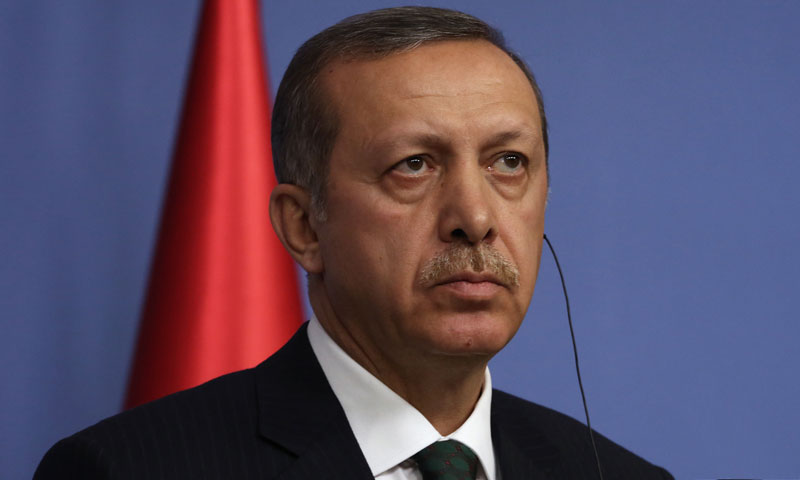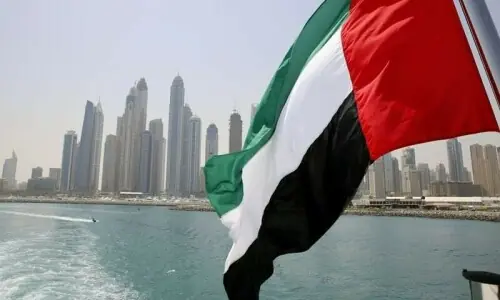A year in politics can be a lifetime. At the start of 2013, Recep Tayyip Erdogan, the Turkish Prime Minister who has led his Justice and Development (AK) Party to three electoral victories, was arguably the most powerful politician in Turkey since Mustafa Kemal Pasha, the father of the modern Turkish nation.
Now, his ambition to become president lies in tatters as he resembles a lame-duck prime minister who can seem to do nothing right. A succession of resignations from his party has weakened his position as he battles for survival against a reinvigorated opposition as well as simmering resentment in his own ranks.
So what went wrong for Erdogan? Almost everything, starting with the riots at Istanbul’s Gezi Park last May and June, and ending with the ongoing furore over aborted corruption charges. In between these events was the leaked proposal to shut down thousands of prep schools controlled by the Hizmet movement run by supporters of the charismatic spiritual leader, Fethullah Gulen.
The Gezi revolt pitted Erdogan against a coalition of environmentalists and young members of civil society who opposed the government’s plans to convert an iconic open space into a commercial development in Taksim Square in the heart of Istanbul. Despite the peaceful nature of the protests that quickly spread across the country, the police used brutal measures to suppress them. Tear gas, batons and rubber bullets were freely used causing hundreds of injuries and a few deaths.
To his lasting credit, Erdogan has succeeded in pushing Turkey’s powerful army back into the barracks. Helping him in this historic task was Gulen who shares many of the Prime Minister’s Islamic beliefs. However, the Hizmet movement has established a parallel state, running thousands of schools in the country as well as abroad. An unknown number of Gulen’s supporters are in the bureaucracy, the judiciary and the police.
At some point, Erdogan decided to cut his ally and potential rival down to size, even though Gulen has lived in self-exile in the United States for years. Today’s Zaman, the Istanbul English-language daily, recently published a draft law banning prep schools. These institutions prepare students for university entrance exams, and as the Hizmet movement runs 3,100 of them, they were a major source of income as well as influence.
The ensuing uproar caused a rupture between Erdogan and Gulen, with the latter firing off stinging broadsides at the Turkish government. This crisis was followed by revelations of massive corruption at the heart of the Turkish government. After a year-long investigation, the police swooped to arrest two sons of sitting ministers as well as a score of well-connected businessmen and bureaucrats.
Erdogan has responded in his usual belligerent fashion, sacking Muammar Akkash, the public prosecutor who led the investigation, as well as several police chiefs who carried out the arrests. And as is his practice when facing criticism and opposition, he has accused a plethora of enemies of being behind the police raids. These include everybody from ‘dark forces’ to Israel’s Mossad and the American CIA.
In my experience, leaders who have been in power for a long time tend to lose touch with reality. Surrounded by sycophants, they become convinced of their own infallibility. In a recent column in Today’s Zaman, a Gulenist newspaper, Isa Ersalan writes: “Erdogan is a great warrior but not a great leader because he doesn’t know where to stop.”
One reason Erdogan continues to stumble despite his many successes and his solid electoral support is that he has polarised Turkish society. By reaching out to his mainly conservative base while ignoring the millions of secular Turks who have voted against him, he has excluded a significant number of educated, articulate and concerned citizens. His attempts to Islamise a society with a secular constitution has not been popular with large sections of the population.
Instead of reaching across the divide, Erdogan has made virtually every issue a ‘them-versus-us’ confrontation. Confusing his mandate for a licence to do as he pleases, he has alienated millions. His autocratic manner has also angered some of his own party members. In the wake of the ongoing crisis, three deputies have resigned from the AK Party.
Abroad, too, Erdogan’s government has been wrong-footed by events in the region. By espousing the cause of the Syrian rebels early on in the civil war, Erdogan no longer has any leverage with Bashar al Assad. Many Turks resent his intervention in the conflict that has brought in a flood of refugees, and the threat of terrorism.
In Egypt, Erdogan had aligned himself closely with President Morsi; his overthrow through a military coup has placed Turkey at loggerheads with the generals. Israel’s repressive policies have caused Erdogan to weaken Turkey’s strong links with the Zionist state. And President Obama’s limited support of the Syrian resistance, and his refusal to bomb Syria, have combined to place a strain on American ties with Turkey.
One thing that kept Erdogan’s popularity ratings high was the stellar performance of the economy under the stewardship of the AK Party. However, there are signs that the years of rapid growth are drawing to a close, at least temporarily.
It is too early to write off Erdogan. He remains a dominant figure, and it is hard to see who could replace him. But unless he learns to be the leader of all Turks, and not just the ones who voted for him, he is bound to remain a deeply divisive figure.































